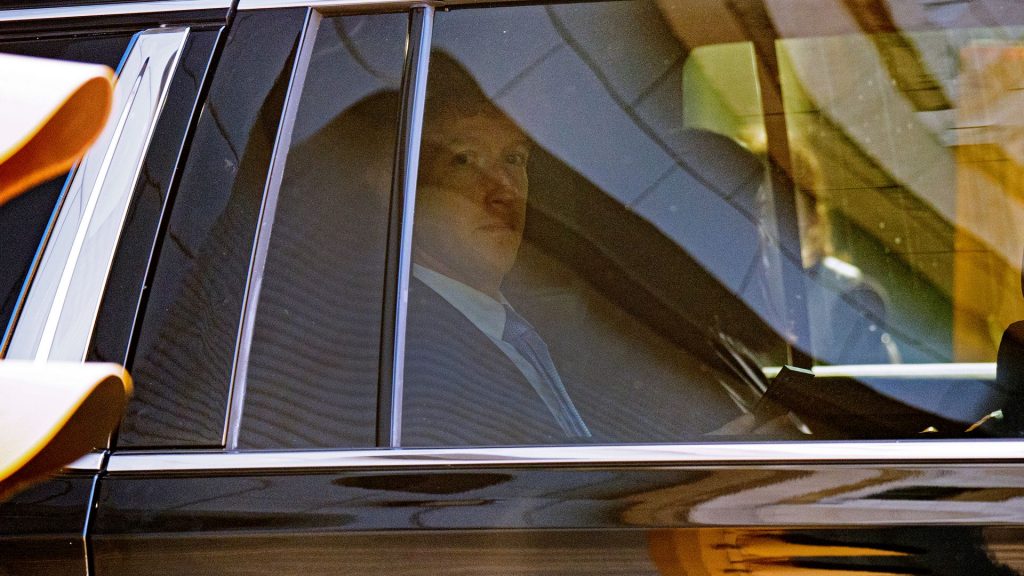Mark Zuckerberg called to testify in landmark antitrust trial
Ella Greene April 15, 2025 0
- Meta CEO Mark Zuckerberg took the witness stand Monday in a landmark antitrust trial involving his company’s ownership of Facebook, WhatsApp and Instagram. If the FTC wins the trial, it seeks to divest WhatsApp and Instagram from Meta, which would impact Meta significantly as Instagram contributes about 50% of its advertising revenue.
- FTC attorney Daniel Matheson accused Meta Platforms Inc. of exploiting its monopoly to generate profits.
- Meta’s attorney Mark Hansen argued that the FTC’s claims were incorrect and asserted that Meta faces competition and has improved the startups it acquired.
Full Story
Meta CEO Mark Zuckerberg took the witness stand Monday, April 14, in a landmark antitrust trial involving Meta and its ownership of Facebook, WhatsApp and Instagram.
The Federal Trade Commission (FTC) is looking into whether the social media giant created an illegal monopoly when it acquired Instagram and WhatsApp.
What’s at stake?
This trial marks the first significant test of the FTC under President Donald Trump, who has long sought to challenge Big Tech. Initially filed in 2020 during Trump’s first term, the lawsuit targets Meta — formerly known as Facebook — alleging that its acquisitions of Instagram and WhatsApp were aimed at eliminating competition and creating an unlawful monopoly in the social media industry.
FTC attorney Daniel Matheson, in opening statements, alleged that Meta Platforms Inc. has exploited its monopoly to generate enormous profits as consumer satisfaction has declined.
Matheson called CEO Mark Zuckerberg to the stand, highlighting internal communications that illustrated Zuckerberg’s frustration with developing a photo-first platform.
Technology reporter Barbara Ortutay, covering the trial for The Associated Press, noted that purchase timing is crucial.
“The FTC is arguing that when Meta bought Instagram and WhatsApp, which are now two social media powerhouses, it did so to squash competition and eliminate rivals,” Ortutay reported.
Meta’s attorney, Mark Hansen, countered that the FTC was making a “grab bag” of incorrect arguments. He asserted that Meta faces plenty of competition and has improved the startups it acquired.
Potential Meta breakup
The stakes are particularly high for Meta.
“If the FTC prevails in this eight-week trial, they seek to divest WhatsApp and Instagram from Meta Platforms,” Ortutay stated. “Meta would then primarily consist of its Facebook and AI businesses. This would be a significant blow for Meta, since it is estimated that about 50% of its advertising revenue comes from Instagram.”
In a court filing last week, Meta emphasized that the FTC “must prove that Meta has monopoly power in its claimed relevant market now, not at some time in the past.” Experts note that this could be a difficult hurdle as the social media landscape has become more competitive since Meta acquired Instagram and WhatsApp.
The case is being heard by U.S. District Judge James Boasberg, who last year rejected Meta’s bid for summary judgment and ruled that the lawsuit must proceed to trial.
Related Stories
Ella Rae Greene, Editor In Chief
Ella Greene
Ella and the staff at Clear Media Project (CMP) curate these articles.
Unless otherwise noted CMP does not write these articles.
The views, thoughts, and opinions expressed in the articles published on this blog belong solely to the original authors and do not necessarily reflect the views of the blog owner. The blog owner does not claim ownership of the content shared by contributors and is not responsible for any inaccuracies, errors, or omissions.
All rights and credits goes to its rightful owners. No Copyright Infringement is intended. If you believe any content infringes on your rights, please contact us for review and potential removal.





